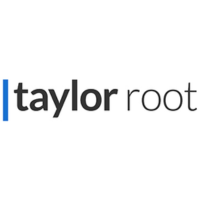

Head of legal department, director legal and corporate affairs - board secretary | Intigral





Roy Stephan
Head of legal department, director legal and corporate affairs - board secretary | Intigral
Team size: Six
Focus on…The Perils of ‘Feeding the Beast’ in Corporate Compliance
Large organisations wield immense influence in the vast realm of global commerce, driving innovation, economic growth, and prosperity. At the core of their operations lies an unwavering commitment to compliance, guiding their every move. Yet, when this dedication to compliance transforms into a practice of “feeding the beast,” and vital actions are deferred out of fear of disrupting the status quo, it lays the groundwork for profound disappointment. This disappointment carries severe consequences not just for the present but for the future and reputation of these corporate behemoths.
In corporate circles, “feeding the beast” characterises a dangerous situation where a company prioritises sustaining profits and appearances over ethical and regulatory compliance. This stance often emerges from the fear that any significant deviation from established norms could disrupt operations, depress stock prices, and tarnish the company’s reputation.
However, the implications of this approach are both profound and far-reaching. There are key facets to consider. Firstly, the erosion of trust, trust is the cornerstone of successful multinational public companies. When compliance issues arise, and the company appears more focused on preserving the status quo than rectifying problems, trust erodes among shareholders, employees, and the public. Rebuilding trust becomes an uphill battle.
Regulatory Scrutiny, regulatory bodies tend to intensify their oversight, especially in the aftermath of high-profile compliance scandals. A company’s reluctance to confront compliance issues head-on can invite heightened regulatory attention, leading to fines and legal repercussions.
Reputation Damage, reputation is an invaluable asset, and once tarnished, it can have lasting consequences. Negative media coverage, backlash on social platforms, and public sentiment can combine to inflict substantial damage on a company’s reputation, impacting its market value and competitiveness.
Internal Decline, morale can plummet when employees perceive compliance breaches are being brushed aside. Disheartened employees may disengage, and a culture of complacency can take root, exacerbating compliance issues.
Market Turbulence, Investors abhor uncertainty. When compliance issues are not addressed proactively, market reactions can turn turbulent, resulting in fluctuating stock prices and potentially significant value erosion.
Financial Instability, neglecting compliance issues jeopardises financial stability. Regulatory fines, legal settlements, and reputational damage can deplete financial resources, placing long-term stability at risk.
In conclusion, belief in compliance within large organisations is paramount, but it must extend beyond rhetoric. Avoiding necessary actions due to fear of upsetting the status quo is a perilous course that leads to profound disappointment and dire consequences. These companies must recognise that addressing compliance issues transparently and proactively is not just an ethical obligation but a critical step in safeguarding their future and preserving their hard-earned reputation. In the ever-evolving landscape of global business, adaptability, and ethical conduct are the cornerstones of long-term success, not complacency and fear.
Chief Legal Officer & Board Secretary | Abunayyan Holding
Chief Legal Officer & Board Secretary | Abunayyan Holding
Chief legal officer, director of compliance MENAT and secretary to the board | Middle East Communications Network